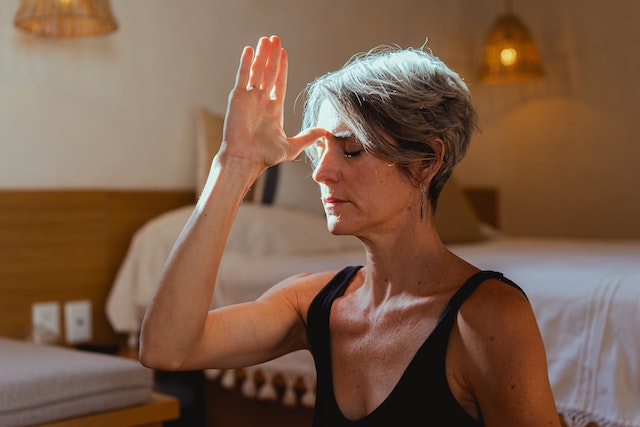Twenty years ago, it’s safe to say most Americans viewed meditation as a religious practice, or at least, something that was limited to a small group of “woo woo” types. In 2023, however, it’s estimated that 200–500 million people meditate regularly around the world. Considering all its health benefits, it’s unsurprising that meditation continues to surge in popularity in the US. Today, an increasing number of people sing the praises of this practice as a powerful, accessible way to relieve stress, center oneself, produce a deep sense of relaxation, and ease a wide array of medical issues.
In researching his best-selling book Tribe of Mentors, author Tim Ferriss found that about 90 percent of the 140executives, leaders, and world-class performers he interviewed employed mindfulness meditation regularly. Ferriss says that the 20 minutes a day he devotes to meditation has helped enhance his emotional control.
More than 35 million (14.2 percent) of Americans have meditated at least once as of 2017, according to a new report from the Centers for Disease Control and Prevention.
Here’s what the Mayo Clinic says about mindfulness meditation, the most common type practiced in the US: “A type of mind-body complementary medicine, it can produce a deep state of relaxation and a tranquil mind.” During meditation, you gather your attention and reduce the clutter of thoughts that may be taking up too much space in your head and causing tension or anxiety. Meditation may reward you with an enhanced sense of overall well-being.”
Specific Benefits
According to the Mayo Clinic, meditation can be a boon to managing the symptoms of the following emotional and physical conditions and health problems:
- Cancer
- Chronic pain
- Depression
- Heart disease
- High blood pressure
- Irritable bowel syndrome
- Sleep problems
- Tension headaches (When you meditate, you may clear away the information overload that builds up daily and contributes to stress.)
Medical experts remind people that meditation is, in no way, a substitute for traditional medical treatment. However, it may be a useful addition.
Getting started
Begin small, say, with a 5 or 10-minute meditation available on one of the many free or low-cost meditation apps available on your phone, tablet, or computer. A few excellent choices to help launch you are Insight Timer, Calm, or Aura. Three of the most highly respected meditation teachers offer no-cost options on their websites and YouTube: Tara Brach, Jack Kornfield, and Jon Kabat-Zinn. Locally, check out Houston Meditation, which offers free classes.
A word to the wise: New meditators worry they won’t be able to stay focused while meditating, and that’s true — for everyone. But remember, that’s why they call it a “practice.” (In other words, be gentle with yourself.)
Three additional bonuses
- While some forms of exercise/self-improvement, etc. require special equipment, particular kinds of clothing, or a designated destination in which to practice, meditation is free and can be performed anywhere. It’s the ultimate in accessibility.
- The positive effects are cumulative. They don’t end after 30 minutes (or whatever time you designate) of sitting on the cushion.
- According to recent studies, meditation may even make its practitioners kinder and more compassionate. “Though the science is far from conclusive, it points to the likelihood that mindfulness meditation does lead to “prosocial” (kind and caring) feelings and thoughts and more compassionate behavior towards others, according to Greater Good magazine.
If you or an older adult you love is seeking companion care, an advisor from Sheila’s Angels would welcome you to join them in a free, in-home consultation at your convenience. We provide a variety of services and types of home care. You can schedule your consultation by phone at (281) 480-4846.

